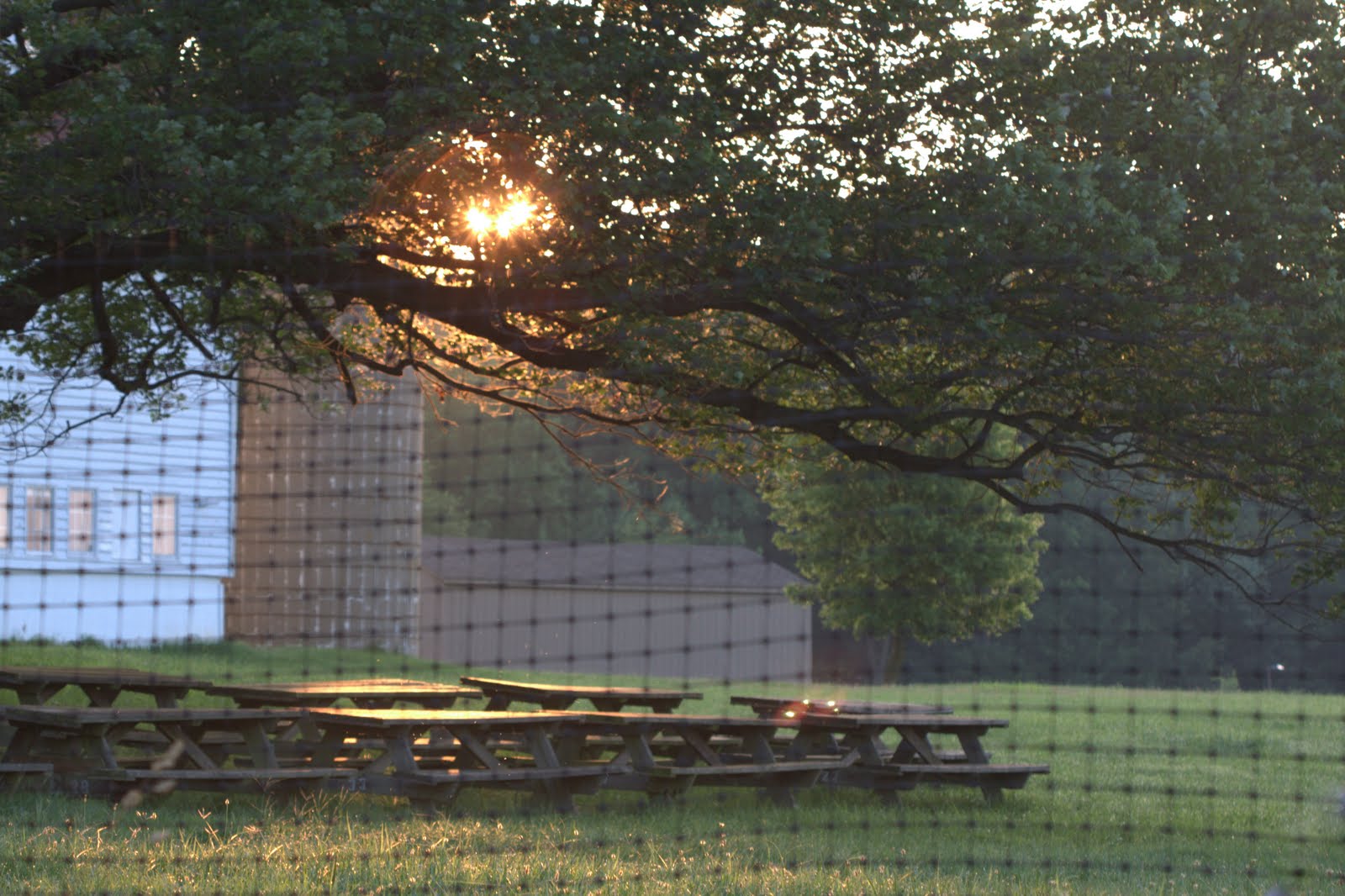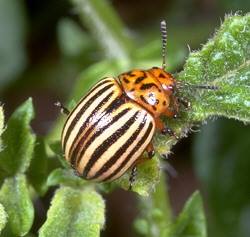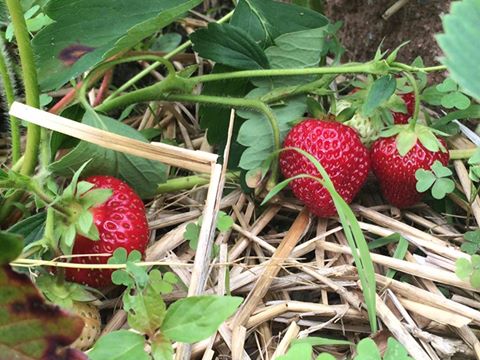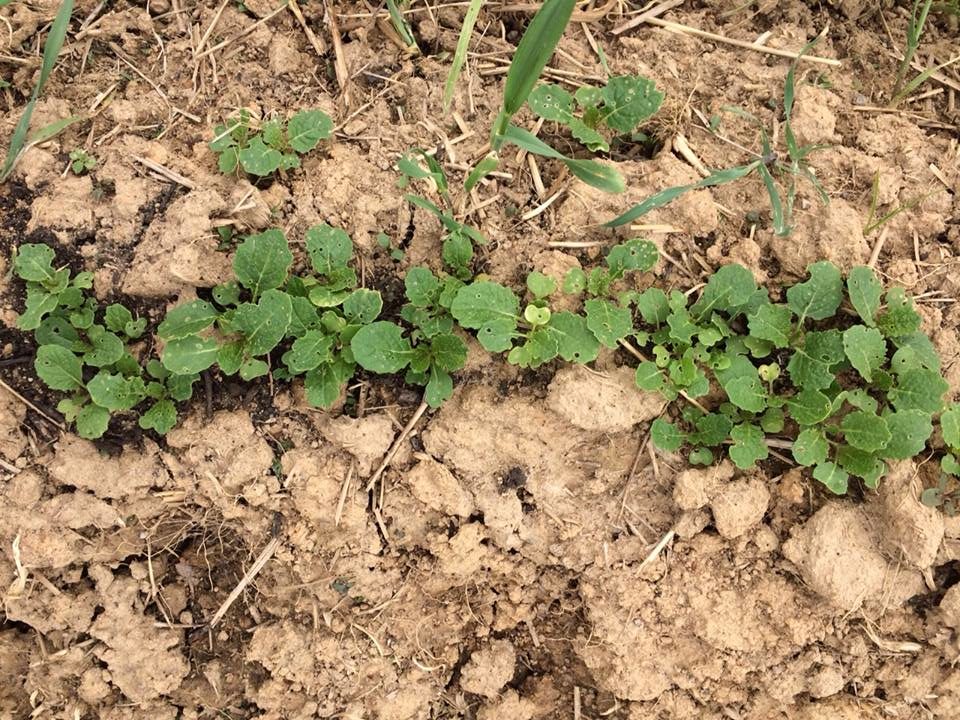Stories from the Farm
Thoughts from our Farm Team
Slowing down
The farm today is looking tired and dry. Our little half-acre plot has produced a ton of food (literally) and even the weeds seem to have now lost the energy to grow. Today we harvested 16 lbs of produce—a far cry from the triple-digit mid-week harvests of a month ago. And yet, finding six squash under the brittle leaves, and gathering up the handfuls of bright red tomatoes, bursting with juice, I’m reminded that each and every vegetable is its own miracle. Sometimes it seems it is the leaner seasons, the drier days that make us recognize life is a gift not to be taken for granted.

Worrying with the Mockingbird
Northern mockingbirds build their nests as low as three feet from the ground. Usually in trees, but on the Cedar Ridge farm, there is one tucked inside the cage of a large tomato plant. A couple of weeks ago we noticed four speckled blue eggs, which have now been replaced by sleepy bundles of feathers. The mother or father bird is always on duty: aggressively patrolling the area, screeching belligerent warnings whenever someone approaches. As I watered the neighboring plants today, it swooped close enough to brush my shoulder with its wing.
Atticus Finch said it is a sin to kill a mockingbird, but the bird’s angry stare from two feet away clearly warns that it has no such reservations towards me. Mockingbirds are known to have attacked both hawks and humans, and have the ability to recognize human individuals who have previously intruded on their territory.
I wish I could tell it that my intentions are good. That the water I bring will keep the plant strong and the nest safely hidden. That picking the fruit from the upper branches will prevent potential injuries to the babies below. But the anxious bird doesn’t understand what I’m doing and needlessly fears the worse.
Maybe it is not so different from the rest of us.

On Beetles
The bugs have arrived: the yellow pinstriped Colorado potato beetles and their lumpy orange babies, as well as the clumsy iridescent green and copper Japanese beetles. Together they are skeletonizing the leaves of the eggplants, potatoes, and beans. So much digging and sowing, weeding and watering, being stripped away one miniscule mouthful at a time.
Organic insecticidal soap has left the beetles cleaner, perhaps, but no less voracious. We have crushed a few and yelled at others, but we are outnumbered.
Gardening, it seems, requires some acceptance of non-germination, molding fruit, and bug-bitten leaves. Only poisoned gardens are blemish-free. And when the futile rage subsides, and you look very closely, even the beetles are beautiful.

Celebrating Small Life
Strawberries are amazing things: technically they are not berries at all, but thickened stems, called receptacles. The little bits on the outsides are not actually seeds, but dry fruit (“achene”) that contain their own seeds. And unlike most other fruits, strawberries do not continue to ripen after they are picked.
We are harvesting a lot of strawberries on the farm right now. Some are alluringly big and round. But typically, I find that if you turn them over, you will see they are still white underneath. And the large strawberries that are fully red have often been discovered by other creatures before I pick them. But there are smaller berries, often hidden under the foliage, that are fully ripe, and perfectly sweet.
When I was younger, I had expected my life to be larger, less hidden, more alluring. It turned out much smaller than I imagined. But sweeter, too.

Shoots and spaces
The lettuce seedlings jostle for space – leaves pushing up against each other like too many kids in the backseat of my car. I hate thinning the seedlings: plucking out life that looks so green and healthy. But I know that otherwise the plants will be stunted and weak.
A nearby row of beets, meanwhile, is sparsely planted. Most of the seeds failed to germinate, and the long trail of empty black potting soil on the neatly shaped raised row smacks of wasted opportunity.
Such it seems are the gardens of our lives!
May we learn to sow and thin until the rhythm of aspiring sprouts and fertile spaces produces food for a hungry world.
Interested in helping out with the Farm?
Learn about the Farm and how you can participate in our work. Seasonally, there are all kinds of ways you can help keep it going.
